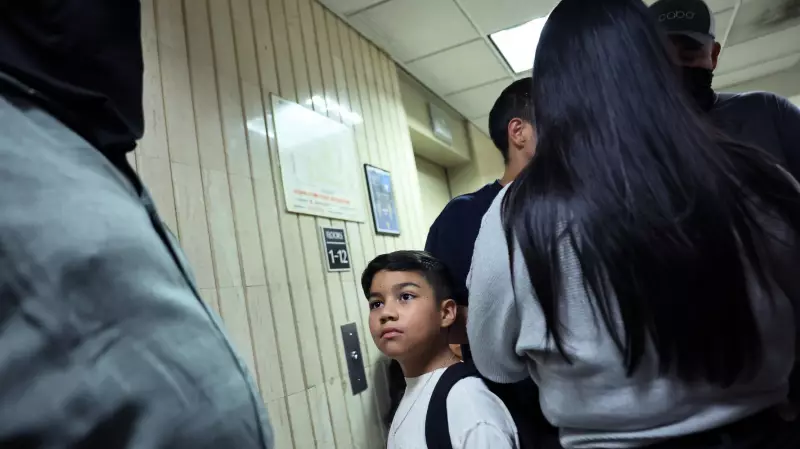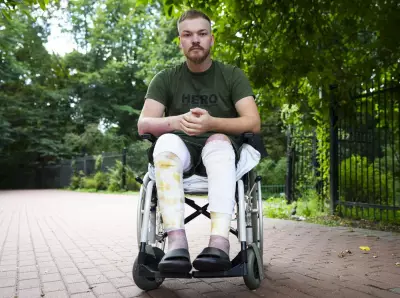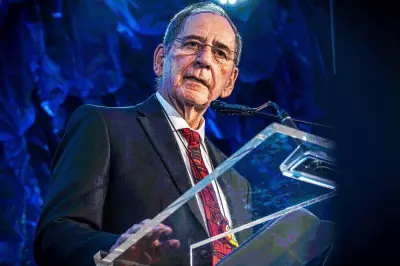
Federal Immigration Agency Proposes Expanded Tracking System
Immigration and Customs Enforcement is moving forward with plans to establish a specialized call center that would make it easier to track immigrant children through coordination with local and state law enforcement agencies. The proposal was detailed in a government contracting document known as a "request for information" that was posted on Tuesday night and first reported by Reuters on Wednesday.
The document outlines what ICE describes as an "immediate need" for a data-enabled call center capable of handling 6,000 to 7,000 calls daily. This facility would serve as a coordination hub for local law enforcement officers across the United States who are working with the Trump administration to enforce immigration policies, including those specifically "focused on locating Unaccompanied Alien Children (UAC)."
Surge in Immigration Enforcement Actions
This development comes amid a significant increase in immigration enforcement activities. According to data from the Deportation Data Project, ICE has deported more than three times the number of immigrant New Yorkers who were removed during the entire previous year. This surge has been largely driven by detainments at 26 Federal Plaza in New York City, where scenes of families being approached by masked federal agents outside immigration court have become increasingly common.
The context was vividly illustrated on September 3, 2025, at the Jacob K. Javitz Federal Building in New York City, where immigration and Customs Enforcement agents continued making detainments as people attended their court hearings. Observers witnessed children watching masked federal agents while their parents were questioned before being released after court proceedings.
Expanded Powers for Local Law Enforcement
The proposed call center would specifically support the 287(g) program, which effectively deputizes local law enforcement to perform various immigration enforcement tasks, including arrests. This program has expanded dramatically under the current administration, with hundreds of local and state law enforcement organizations now cooperating with ICE. Most recently, Texas state troopers were deputized through this program.
According to the RFI, workers at the proposed center would field inquiries from local 287(g) partners in the field, cross-check them against government databases, and "confirm enforcement actions in the field." The document indicates the center would operate 24 hours a day, seven days a week, though certain functions would follow a standard 40-hour work week.
One specific function outlined in the call center overview involves "integrating and leveraging 287(g) resources focused on locating Unaccompanied Alien Children (UAC)." The center would "provide 287(g) partners and Field Offices with UAC targeting focus and material," "track 287(g) partner UAC location results and reporting," and serve as liaison with the Juvenile and Family Management Division, which handles accounting for children and families in ICE custody.
Impact on Vulnerable Immigrant Children
The term "unaccompanied alien children" refers to minors who arrive in the United States without parents, legal guardians, or legal status. These children are initially held in the custody of the Department of Health and Human Services' Office of Refugee Resettlement, which manages a network of shelters. While most are eventually placed with family members or vetted sponsors, the time children spend in government custody has increased substantially during President Donald Trump's second term.
Government custody duration has skyrocketed from an average of 35 days last October to 186 days for children discharged from ORR custody in September, according to HHS figures. Under the Trump administration, children released from government custody also face increased risk of being re-detained and returned to the shelter system if they or their sponsors encounter law enforcement.
By June, approximately 500 children had been taken into government custody following so-called welfare checks, including situations where federal agents took enforcement action against children's sponsors, according to CNN reporting that cited three unnamed sources.
Controversy and Criticism
Immigration advocates have expressed serious concerns about the proposed call center. Michael Lukens, executive director for the Amica Center for Immigrant Rights, told ABC News that "The center will not protect children. It will only serve to make it easier to deport them."
Neha Desai, managing director at the National Center for Youth Law, noted to Bloomberg that she has witnessed children being arrested following routine traffic stops. "These children are then re-detained in a system that has become nearly impossible to exit," Desai said.
When questioned about the contracting document, DHS spokesperson Tricia McLaughlin provided a four-word statement to HuffPost: "Your reporting remains incorrect." She offered the same response to Bloomberg and The Guardian but provided no further specification or response to follow-up questions.
The RFI represents an initial step in the government contracting process, meant to help officials solicit information about market conditions and contractor interest. The document asks vendors to detail technology they would use "to integrate partner and alien data with our systems to maximize call efficiency and reduce call time," along with estimated milestones to reach initial operability by March. The call center is scheduled to begin initial operations in the Nashville area by March, with full operations expected by June.
This proposal follows several other Trump administration initiatives focused on immigrant children, including an internal ICE memo from February that outlined efforts to track down specific unaccompanied children deemed "flight risks" or threats to public safety, attempts to quickly deport dozens of Guatemalan children in September, and recent reports of ICE offering $2,500 financial compensation to unaccompanied youth in exchange for agreeing to "self-deport" and abandon their legal cases to remain in the United States.






